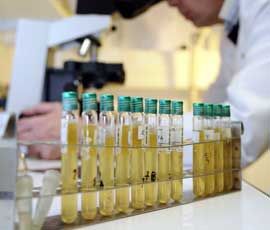Horsemeat: Smarter rules for safer food

The European Commission has revealed plans to strengthen food controls in the agri-food chain in response to the recent horsemeat scandal.
A package of measures, unveiled by the commission this week, will tighten food controls and simplify legislation.
The current body of EU legislation consists of almost 70 pieces of legislation. But the new package of reforms will cut this down to five and reduce the red tape burden on farmers, breeders and food producers, processors and distributors.
EC health commissioner Tonio Borg said the package aims to provide “smarter rules for safer food” in the European Union. If approved by member states, the reforms would come into force by 2016, he added.
Under the proposals, the EC would gain powers to make member states carry out testing in suspected food fraud cases. Governments would also be required to carry out random inspections on food operators to ensure the contents match what it says on the label.
Mr Borg also outlined plans to impose tougher penalties on those caught committing food fraud, set at “truly dissuasive amounts” which would wipe out any profits made through illicit food sales.
Speaking in Brussels this week, the commissioner said: “Europe has the highest food safety standards in the world. However, the recent horsemeat scandal has shown that there is room for improvement, even if no health risk emerged.
“Today’s package of reforms comes at an opportune moment as it shows that the system can respond to challenges.”
The Food Standards Agency (FSA), the government’s food safety watchdog, said it was already in the process of consulting with stakeholders as part of a UK-wide programme across the food industry and with enforcement agencies to gather views on the potential impact of the proposed changes.
“The proposed plans will potentially affect all organisations involved in the production, manufacture, supply and regulation of food, feed, live animals, plants and plant reproductive material,” said the FSA.
“The commission’s aim is to ensure a more consistent approach to official controls, such as inspection and approvals, throughout the food and agriculture sectors. The changes are also intended to support more sustainable and effective control systems across EU member states.”
